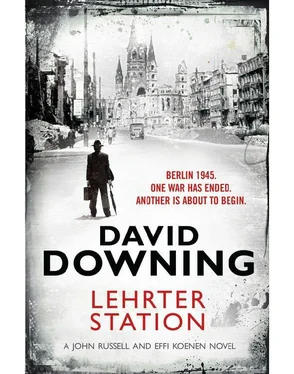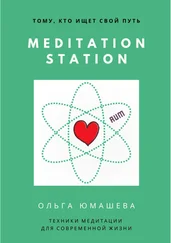David Downing - Lehrter Station
Здесь есть возможность читать онлайн «David Downing - Lehrter Station» весь текст электронной книги совершенно бесплатно (целиком полную версию без сокращений). В некоторых случаях можно слушать аудио, скачать через торрент в формате fb2 и присутствует краткое содержание. Жанр: Шпионский детектив, на английском языке. Описание произведения, (предисловие) а так же отзывы посетителей доступны на портале библиотеки ЛибКат.
- Название:Lehrter Station
- Автор:
- Жанр:
- Год:неизвестен
- ISBN:нет данных
- Рейтинг книги:5 / 5. Голосов: 1
-
Избранное:Добавить в избранное
- Отзывы:
-
Ваша оценка:
- 100
- 1
- 2
- 3
- 4
- 5
Lehrter Station: краткое содержание, описание и аннотация
Предлагаем к чтению аннотацию, описание, краткое содержание или предисловие (зависит от того, что написал сам автор книги «Lehrter Station»). Если вы не нашли необходимую информацию о книге — напишите в комментариях, мы постараемся отыскать её.
Lehrter Station — читать онлайн бесплатно полную книгу (весь текст) целиком
Ниже представлен текст книги, разбитый по страницам. Система сохранения места последней прочитанной страницы, позволяет с удобством читать онлайн бесплатно книгу «Lehrter Station», без необходимости каждый раз заново искать на чём Вы остановились. Поставьте закладку, и сможете в любой момент перейти на страницу, на которой закончили чтение.
Интервал:
Закладка:
‘I’m working tomorrow and Friday,’ Effi lamented.
‘Then we’ll wake him up on Saturday.’
He drove them to the Press Club in Dahlem, and returned the jeep to its owners.
While Effi made use of the pampered press corps’ hot showers, he used one of the telephones to track down the number of a paper now printing in Frankfurt. ‘There’s a man on the train from Berlin,’ he told the desk he eventually reached, ‘the one that’s supposed to arrive just after nine this evening. His papers say he’s Oskar Meissner but his real name is Ulrich Mechnig. He was a Gestapo Sturmscharfuhrer, and he has a lot of blood on his hands.’
‘Who are you? How do you know about this?’
‘I’m a journalist just like you,’ Russell told him. ‘And naturally I can’t divulge my sources.’ He hung up the phone, and stood there for a moment examining his conscience.
It was fine. What he’d done was hardly cricket, but who would invite the Nazis to Lord’s?
That evening, they listened to Torsten recount Miriam’s story. The children were sleeping; Esther, though she stayed with them in the dimly lit kitchen, had heard it all that morning.
After her rescue Miriam had, at Isendahl’s instigation, been taken in by a Marthe and Franz Wilden. This Christian couple, who had no children of their own, had lavished the mute, traumatised and pregnant girl with care and attention. Frau Wilden, who had served as a nurse in the First War, had eventually helped deliver the baby, and her husband had paid a small fortune for the necessary documentation.
As Russell had guessed, the young Leon had been fathered by one of the SS rapists in the house on Eisenacher Strasse. But her son’s birth had been Miriam’s re-birth — according to Torsten she often said that having the child was like waking up again. And that, once a mother, she had become determined to survive the war.
It never mattered that Leon was the product of rape, or that the rapist was a killer of her people — she loved the child without reservation. She considered going home to Silesia but the risks seemed too high — her false papers were for a Berliner, and people would certainly recognise her in Wartha. She sent letters to her parents, but never received a reply — by this time, of course, the farm was in ruins, Leon and Esther long since gone. The lack of response upset her, but it still seemed wiser to stay where she was.
Then, in the autumn of 1942, the Wilden house had been bombed. She and Leon were in the cellar, but the Wildens were both killed, and her papers were destroyed in the subsequent fire. Risking everything, convinced that even a blind man could see she was Jewish, she went to apply for new ones, at the office which dealt with such eventualities. And the man she saw had flirted with her, ruffled Leon’s hair, and provided the papers and home she needed without so much as a second thought. That afternoon she and the boy moved into a room of their own in Wedding, stunned by how easy the process had been.
As her confidence grew, the bombing got worse, and she eventually decided that the risks of staying outweighed those of going home. She realised that Wartha was still out of bounds, but Breslau would do until the war was over, and someone might have news of her parents. Something happened on the train — something she would never talk about — but they both arrived safely, and were allocated a room by the city authorities which a Jewish family had long since abandoned. She visited the Petersdorff store more in hope than expectation — Torsten was well past the age of call-up — but there he was.
And there she was. ‘I couldn’t believe it when I saw her,’ Torsten said. ‘I fell in love with her all over again. Or I would have, if I hadn’t always loved her.’
He smiled at the memory. ‘She came to stay with me, and, well’ — he glanced across at Esther — ‘soon we were living as husband and wife. No one troubled us, and we troubled no one. Little Esther was born, and it felt as though we had a complete family. The war was getting closer of course, but we never dreamt things would get as bad as they did. We were so happy. Until the day she died we were happy.’ He raised his eyes. ‘And she lives on in the children.’
‘Yes,’ Esther said quietly. ‘Yes, she does.’
After the Soviet bus collected Effi next morning, Russell spent the predawn hours working at Thomas’s desk. By the time he set out for the Press Club it was fully light, but the canteen seemed emptier than usual, and most of the German staff looked bored to death. After satisfying his new addiction to pancakes and syrup, and downing two cups of the passable coffee, he retraced his steps as far as the American headquarters on Kronprinzenallee.
During their time together on Christmas Eve, Wilhelm Isendahl had given him the name of a sympathetic American in the Denazification section of the Public Safety division. According to Isendahl, David Franks was a New York Jew with a mission, and that was to nail as many Nazis to the wall as higher authority would allow.
His office was at the other end of the old Luftwaffe building, a good three hundred metres from Dallin’s. Which was just as well — next week was quite soon enough for the resumption of his career as an American agent. Shchepkin had not said how much Russell should tell the Americans about Friday’s scheme to torpedo Nemedin, and it seemed simpler to get that behind him before meeting Dallin.
Sometimes he thought he should write it all down as he went along. Like a paper trail in a maze.
David Franks, at least, conformed to expectations — he looked and acted like other New York Jews of Russell’s acquaintance — dark and bespectacled, with a restless intelligence just on the cusp of neurotic. His office might well have been the fullest in Berlin, in terms of both paper and future prospects. Towers of completed Fragebogen rose from the floor like Franks’ hometown skyscrapers.
Isendahl had already rung to introduce him, which saved a lot of explanation. It turned out the Nazi records he needed — the ones discovered in September and subsequently brought to Berlin — were held at a villa on the edge of the Grunewald. Franks commuted between the two, checking the Fragebogen against the official files, and as luck would have it he was on his way there. ‘Wilhelm didn’t give me any names, only the general idea,’ he told Russell as they walked down to the jeep. ‘But I’m happy to take all the help I can get. There are enough of our people who don’t give a damn.’
‘And why’s that?’
‘Two reasons. One, they’ve decided that fighting the Russians has top priority, and any enemy of theirs is a friend of ours. Two, anti-Semitism’s not just a German disease.’
They drove down Argentinische Allee, passing the Onkel Toms Hutte U-Bahn station before turning west towards the forest. The villa was in Wasserkafersteigstrasse, a cul-de-sac ending in trees. A shiny new barbedwire fence surrounded the complex, and two sentries guarded the gate.
‘Someone cares,’ Russell murmured.
‘So they should. The stuff in here will determine Germany’s future.’ He turned to Russell. ‘Actually, they’re pretty lax. They know me, so they probably won’t even ask to see your papers, but if they do, I’ll tell them you’re helping me with some local knowledge. Okay?’
In the event, they were just waved through. Down in the over-stuffed vault, Franks collected the relevant file cards, and Russell transcribed any additional details that they contained. All the names they had gathered from their Jewish witnesses were there save one. There was no card for a Fehse, Reinhard or otherwise.
‘Why would it be missing?’ Russell asked.
‘No reason. If it’s not here, there isn’t one.’
Читать дальшеИнтервал:
Закладка:
Похожие книги на «Lehrter Station»
Представляем Вашему вниманию похожие книги на «Lehrter Station» списком для выбора. Мы отобрали схожую по названию и смыслу литературу в надежде предоставить читателям больше вариантов отыскать новые, интересные, ещё непрочитанные произведения.
Обсуждение, отзывы о книге «Lehrter Station» и просто собственные мнения читателей. Оставьте ваши комментарии, напишите, что Вы думаете о произведении, его смысле или главных героях. Укажите что конкретно понравилось, а что нет, и почему Вы так считаете.












